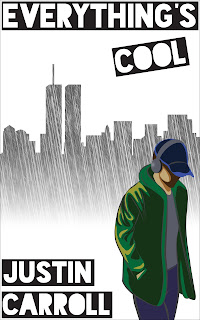As part of her whistle-stop blog tour promoting her debut novel, 'The Language of Spells' which was released yesterday, author Sarah Painter settles in the Strictly Station with a nice cup of tea and a cream cake and tells us a bit more about herself and her book.
It’s about going home, family secrets, and
second chances. With added magic. And kissing. Here’s the blurb:
When you are ready, seek, and you
shall find. It is your gift.
Gwen Harper left Pendleford thirteen years
ago and hasn’t looked back. Until an inheritance throws her into the
mystical world she thought she’d escaped. Confronted with her great-aunt’s
legacy Gwen must finally face up to her past.
The magic she has long tried to suppress is
back with a vengeance but gift or burden, for Gwen, it always spells trouble.
She has to stay – she has nowhere else to go – but how can she find her place
in the town that drove her out after branding her a witch…?
The story started (as
mine always seem to) with a character's voice (Gwen’s mysterious great aunt
Iris) in my head that stopped me in my tracks and made me want to write it
down.
How was
your journey to publication?
I've been very lucky
to get lots of encouragement along the way, but it's been a long road… I got an
agent with my second book and had the 'close but no cigar' experience with
publishers. Rather than seeing this as an achievement (positive
thinking!), I responded with a massive
crisis of confidence. I did a masters in creative writing and, after parting
company with my agent and completing my dissertation, I decided to write a
'fun' book. Something to cheer myself up after a year of trying to write gloomy
literary fiction for my degree. Then I spent what felt like a lifetime (a few
months) subbing to agents. I had lots of interest - requests for the full
manuscripts and rewrites and exciting phone calls - but they all ended with
'close but not quite'. By the time Sallyanne rang me, I actually didn't realise
she was offering to take me on and had to check! After working with me on
revisions, Sallyanne subbed it to publishers and secured the deal with Carina
UK. Phew!
How important do
you consider the support of family/friends?
Vitally so! As you
can tell if you waded through my last response, I had a lot of rejection and a
lot of near misses. There were plenty of dark moments when I thought that I
should stop torturing myself with the submission process and take up something
I could actually succeed at. I would’ve given up many times over if it wasn't
for the support and encouragement of my writer friends (most of whom I met on
Write Words, many moons ago) and my lovely family.
We always ask this because we ALWAYS want to know! What advice would
you give to any unpublished writers today?
To write from your heart, work on
your craft, and to keep going. Also, get yourself a support network of writer
friends. You can swap critiques and cheerlead each other through the tough
times. Try online forums, blogs, Twitter, or, if you’re less of a scaredy-cat
than me, a local ‘real life’ group.
What's your next book going
to be about/ have you already begun writing it?
I'm working on the sequel to The Language of Spells. My publishers
asked if I would write another book set in the same world and of course I said
‘yes’. After pinching myself very hard to make sure I wasn’t dreaming, that is!
You can find Sarah's book here: 'The Language of Spells'
The next stop on Sarah's book tour is at Novelicious and she'll be there on Saturday 1st June. That's tomorrow!
Thanks for joining us at Strictly Writing, Sarah. Good luck with the book, the tour and the next book. We're sure we'll be seeing a lot more of you in the future!









